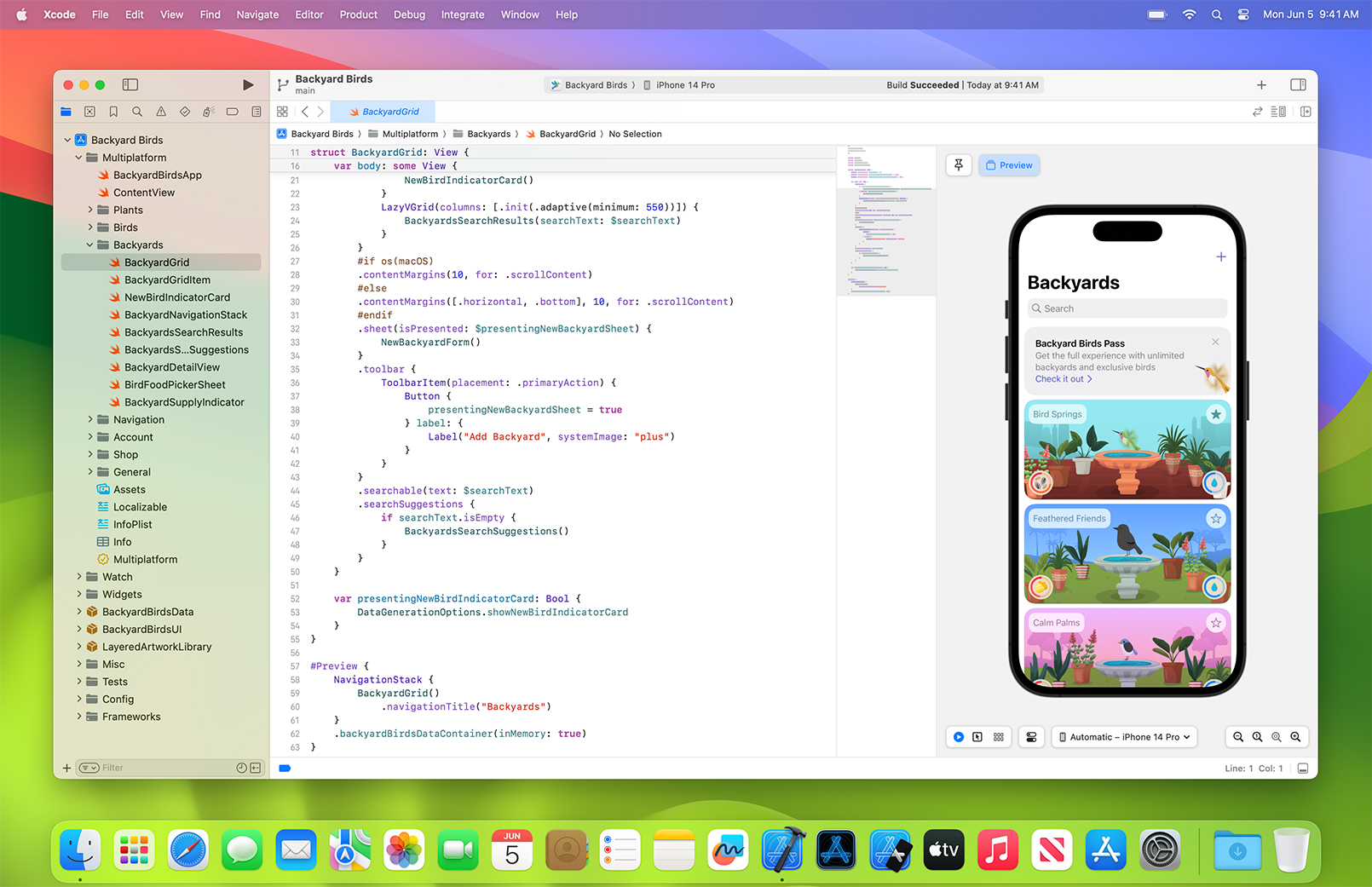In-Depth Review of Xcode: Powering iOS and macOS Development
Xcode stands as the cornerstone of iOS and macOS app development, providing developers with a comprehensive suite of tools and resources to create stunning and innovative applications for Apple’s ecosystem. Let’s delve into the key features and functionalities of Xcode:
1. Integrated Development Environment (IDE): Xcode offers a powerful integrated development environment that streamlines the entire app development process. From writing code to designing user interfaces, debugging, testing, and deploying apps, Xcode provides a cohesive and efficient workflow that enhances productivity and creativity. With features such as code autocompletion, syntax highlighting, and integrated documentation, developers can write clean and efficient code with ease.
2. Interface Builder: Xcode’s Interface Builder empowers developers to design visually stunning user interfaces for their iOS and macOS apps with ease. Using a drag-and-drop interface, developers can quickly create layouts, arrange UI elements, and customize appearance and behavior. With support for auto layout, size classes, and dynamic type, Interface Builder ensures that apps adapt seamlessly to different screen sizes and orientations, providing a consistent and intuitive user experience across devices.
3. SwiftUI and UIKit: Xcode provides support for both SwiftUI and UIKit, two powerful frameworks for building user interfaces in iOS and macOS apps. SwiftUI offers a modern and declarative approach to UI development, allowing developers to create dynamic and responsive interfaces with minimal code. Meanwhile, UIKit remains a robust and versatile framework for building complex and custom UIs with fine-grained control. With Xcode’s support for both frameworks, developers have the flexibility to choose the approach that best suits their needs and preferences.
4. Performance and Debugging Tools: Xcode includes a suite of performance and debugging tools that enable developers to identify and address issues in their apps quickly and efficiently. With tools such as Instruments for performance analysis, XCTest for unit testing, and LLDB debugger for debugging code, developers can ensure that their apps run smoothly and reliably on iOS and macOS devices. Additionally, Xcode’s integrated simulator allows developers to test their apps on different device configurations and versions of iOS and macOS, facilitating comprehensive testing and optimization.
5. Continuous Integration and Deployment: Xcode supports continuous integration and deployment workflows, allowing developers to automate the build, test, and distribution process for their apps. With features such as Xcode Server and integrations with CI/CD platforms like Jenkins and GitLab, developers can streamline the release process and ensure that their apps are delivered to users quickly and efficiently. Whether deploying to the App Store, TestFlight, or enterprise distribution channels, Xcode provides the tools and infrastructure needed to manage the entire app lifecycle seamlessly.
6. Extensive Documentation and Resources: Xcode is supported by extensive documentation, tutorials, and resources that empower developers to learn and master the platform. Whether through Apple’s official documentation, WWDC videos, or community-driven resources like Stack Overflow and GitHub, developers have access to a wealth of knowledge and expertise to support their app development efforts. Additionally, Xcode’s built-in code snippets, templates, and sample projects provide valuable starting points and inspiration for developers embarking on new projects.
7. Accessibility and Localization: Xcode prioritizes accessibility and localization, allowing developers to create apps that are inclusive and accessible to users around the world. With features such as VoiceOver support, Dynamic Type, and localization tools, developers can ensure that their apps are usable by all users, regardless of their abilities or language preferences. By incorporating accessibility and localization into the development process from the outset, developers can reach a broader audience and deliver meaningful experiences to users worldwide.
In conclusion, Xcode stands as a powerful and indispensable tool for iOS and macOS app development, providing developers with everything they need to create innovative and engaging experiences for Apple’s ecosystem. With its integrated development environment, Interface Builder, support for SwiftUI and UIKit, performance and debugging tools, continuous integration and deployment capabilities, extensive documentation and resources, and focus on accessibility and localization, Xcode empowers developers to bring their app ideas to life and deliver meaningful experiences to users worldwide. Whether you’re a seasoned developer or just starting out, Xcode provides the foundation for success in the dynamic and ever-evolving world of app development for iOS and macOS.
ChatGPT can make mistakes. Check important info.

Leave a Reply